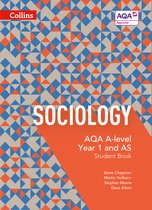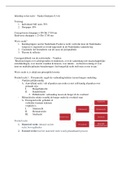Evaluate the view that gender differences in educational achievement are the result of in-school
processes:
PLAN:
Argument: out school processes more important. In school processes are still founded on wider
notions of gender that are created by wider society.
P1: WIDER SOCIETY/MEN AND WOMEN AT WORK
- career aspirations
SUE SHARPE 1994: girls today have different priorities: careers
- legislative changes
1970s: Equal Pay Act + Sex Discrimination Act. More opportunities for women in the
workplace
- family structure
Willmott & Young 1970: symmetrical family, responsibilities divided equally, more
chance for women to have careers rather than solely childbearing
- change in men’s work roles = identity crisis BUT need for more qualifications not less
P2: FEMINISATION/SOCIALISATION)
- Feminisation of education means more role models for girls. BUT not true for STEM subjects
which are dominated by male teachers but girls still ahead
- Education system is more suited to girls. Based on the idea that girls are socialised into
qualities favoured by the system e.g. obedience, neatness, concentration.
P3: LABELLING AT SCHOOL
- boys negatively labelled.
JACKSON 1998: higher expectations of girls
SWANN & GRADDOL: Teacher interactions with boys usually behavioural
- can provoke anti-school subcultures (e.g. WILLIS ‘lads’) & self-fulfilling prophecies
- point out that labels are based on notions of gender propagated by wider society ---> in-
school process comes from out-school process







